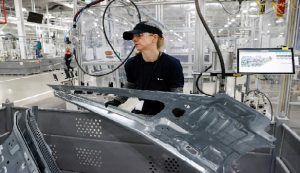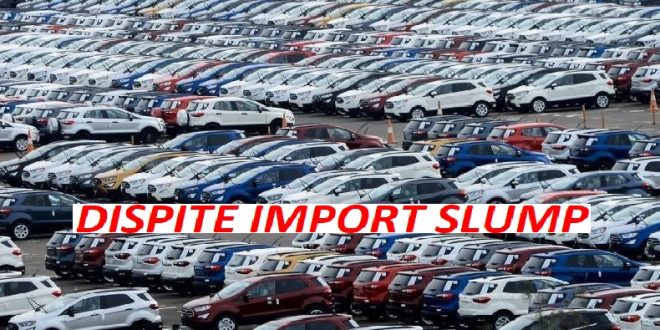19-06-2024
BERLIN/ BRUSSELS: Chinese electric vehicle imports to Germany declined in the first four months of the year, but Asia’s economic powerhouse still managed to increase its EV import market share in Germany during the period, the German statistics office said on Tuesday.
 Imports of Chinese EVs to Germany fell by 15.7% to 31,500 vehicles between January and April, Destatis said. However, China increased its EV import market share in Germany to 40.9% during the period and remains its biggest importer of e-cars. Last week, the European Commission said it would impose extra levies of up to 38.1% on imported Chinese electric cars from July to contrast an influx of cheap cars in its market spurred by robust state subsidies at home.
Imports of Chinese EVs to Germany fell by 15.7% to 31,500 vehicles between January and April, Destatis said. However, China increased its EV import market share in Germany to 40.9% during the period and remains its biggest importer of e-cars. Last week, the European Commission said it would impose extra levies of up to 38.1% on imported Chinese electric cars from July to contrast an influx of cheap cars in its market spurred by robust state subsidies at home.
The statistics office pointed to weak domestic demand as a reason for the slump in Chinese EV imports during the four-month period.
The Czech Republic and South Korea saw their EV exports to Germany fall by almost a third and half, respectively, compared to the same period in 2023.
“Chinese electric car imports thus declined much more weakly than total imports of electric cars,” the federal statistics office said.
In 2023, China exported a total of 447,200 electric cars to Germany, while only 11,400 moved in the other direction, according to Destatis.
Earlier, the European Commission said it will impose extra duties of up to 38.1% on imported Chinese electric cars from July, risking retaliation from Beijing which said on Wednesday it would take measures to safeguard its interests.
Less than a month after Washington announced plans to quadruple duties for Chinese EVs to 100%, Brussels said it would combat excessive subsidies with additional tariffs ranging from 17.4% for BYD (002594.SZ), opens new tab to 38.1% for SAIC (600104.SS), opens new tab, on top of the standard 10% car duty.
 That equates to billions of euros of extra costs for the carmakers at a time when they are struggling with slowing demand and falling prices at home, according to Reuters calculations based on 2023 EU trade data.
That equates to billions of euros of extra costs for the carmakers at a time when they are struggling with slowing demand and falling prices at home, according to Reuters calculations based on 2023 EU trade data.
European automakers, meanwhile, are being challenged by an influx of lower-cost EVs from Chinese rivals. The Commission estimates their share of the EU market has risen to 8% from below 1% in 2019 and could reach 15% in 2025. It says prices are typically 20% below those of EU-made models.
Andrew Kenningham, chief Europe economist at Capital Economics, said the EU decision marked a big change in its trade policy because, although it used trade defences against China often, it had not done so for such an important industry.
European policymakers are keen to avoid a repeat of what happened with solar panels a decade ago when the EU took only limited action to curb Chinese imports and many European manufacturers collapsed. The EU launched an anti-subsidy investigation into Chineses EVs in October.
Shares in some of Europe’s biggest carmakers which make a big portion of their sales in China, fell on fears of Chinese retaliation. Some like BMW (BMWG.DE), opens new tab will also now incur duties on their EVs made in China and sold in Europe.
Chinese foreign ministry spokesperson Lin Jian said the EU’s investigation was a “typical case of protectionism” and tariffs would damage China-EU economic cooperation and the stability of the global automobile production and supply chains.
Beijing, he said, would take all necessary measures to “firmly safeguard” its legitimate rights and interests.
The Chinese Passenger Car Association seemed less concerned. (Int’l Monitoring Desk)
 Pressmediaofindia
Pressmediaofindia




